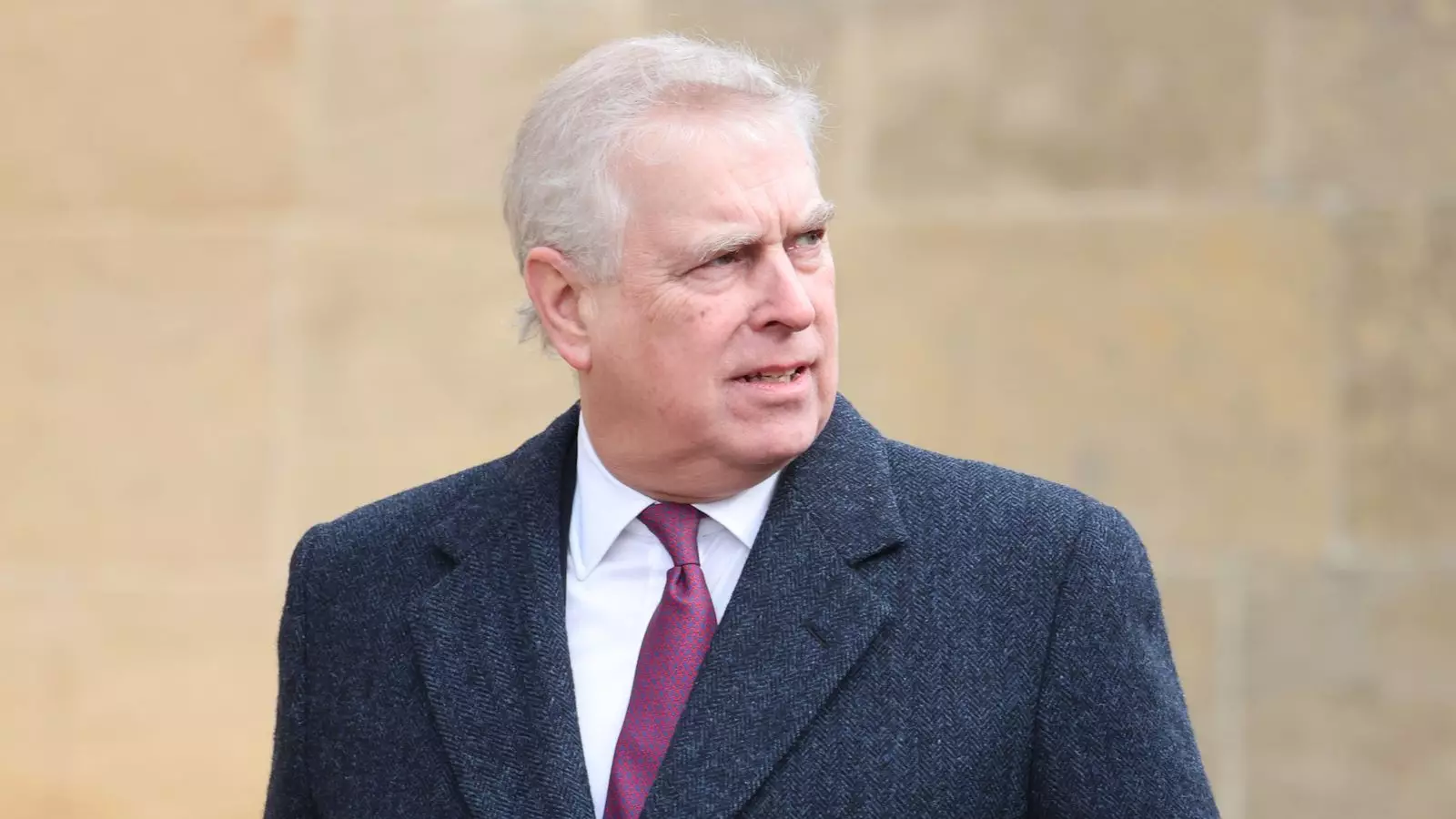In recent weeks, Prince Andrew, the Duke of York, has found himself engulfed in controversy due to revelations concerning his ties with a businessman alleged to be involved in espionage on behalf of the Chinese government. This situation has not only raised questions about the Duke’s personal judgment but also beckoned deeper reflections on the intersection of monarchy, politics, and national security. Following a series of troubling disclosures, Andrew formally declared the cessation of all connections with the individual in question, referred to as “H6,” emphasizing that his decision was made upon the advice of government officials.
The communication from Prince Andrew’s office highlights a significant turning point in his public persona since being stripped of royal patronages and military affiliations. The fact that he was prompted to sever ties due to national security concerns underscores the heightened scrutiny that public figures, particularly royals, are subjected to in our globalized world. H6 was allegedly an aide to the Duke who was present at significant royal events, including Andrew’s own birthday party. This raises questions about the vetting processes surrounding guests of the royal family and whether sufficient measures are in place to mitigate risks associated with engaging individuals of ambiguous affiliations.
The Home Office had previously categorized H6 as someone engaged in “covert and deceptive activity,” which adds layers of complexity to Andrew’s prior associations. Despite the Duke’s insistence that no sensitive discussions occurred between them, the implications of such connections in an age where diplomatic relations become increasingly intricate cannot be overlooked. This saga not only directly concerns Andrew but also sheds light on the potential vulnerabilities inherent in public figures’ social circles.
What makes this incident particularly poignant is its reflection on the relationship between the UK and China, two nations that have had a tumultuous diplomatic history. The Chinese embassy’s response further complicates the narrative, suggesting that the animosity against certain aspects of China has led to exaggerated claims. The uproar surrounding Prince Andrew’s connections thus serves as a microcosm of more significant geopolitical tensions, where the personal lives of individuals can inadvertently influence international perceptions and relations.
As the appeal process for H6 continues, further discourse surrounding the accusations of espionage against him may escalate. The judgment made by the Special Immigration Appeals Commission reinforced the ban on H6, framing the narrative that Prince Andrew could have fallen prey to manipulation via his associations with the businessman. In a country with a longstanding tradition of peerage and nobility, the implications of this critical ruling reveal a profound shift away from the perception of the royal family as above politics to one where they are profoundly affected by the geopolitical chess game unfolding around them.
The controversy isn’t merely a fleeting headline; it signifies a pivotal moment in Prince Andrew’s already fraught reputation. After stepping back from royal obligations due to his links with the disgraced Jeffrey Epstein, the Duke finds himself once again in the court of public opinion, wrestling with allegations that resonate with past scandals. The gravity of this situation could result in further distancing by the royal family or, conversely, attempts to rehabilitate his image could backfire, deepening public distrust.
In terms of available avenues for Prince Andrew, the path forward is fraught with difficulties. Engaging in his newfound status as a former ambassador without the official backing of the royal family presents a conundrum. His experiences offer critical lessons regarding transparency, strategic distancing from controversial figures, and the nuances of public service—lessons that extend beyond the personal and encapsulate the responsibilities of service and standing in an interconnected world.
The debacle surrounding Prince Andrew and the allegations tied to H6 serves as an illustration of the complex tapestry of relationships that intertwine within the royal family, the government, and foreign entities. The fallout from these revelations may not be confined to Andrew alone; it has the potential to reverberate throughout the structures of the monarchy as a whole, reshaping how royal affiliations are perceived in an era of heightened scrutiny and evolving diplomatic realities. As investigations and public perceptions continue to evolve, one can only wait to see how this chapter of royal history is ultimately written.

Leave a Reply